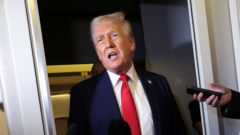President Trump’s much-hyped Ukraine ceasefire lasted only one hour. But was anyone really that surprised? Its terms were vague, short-sighted and lacked components that any credible peace deal requires. In the 21st century, data informs most public policy decisions. So why aren’t peace negotiations evidence-led?
Is there a secret formula for a successful ceasefire? That depends on how we define success. Is the aim to stop the fighting quickly, to build the foundation for lasting peace, or to avert a humanitarian catastrophe? Each outcome requires different priorities, and each should be shaped by evidence.
So far, Trump’s negotiations — focused on land and power plants — have failed to address any of these goals. His demands were unlikely to secure a durable peace and unsurprisingly, the ceasefire collapsed in just 60 minutes, as Russia resumed strikes on homes, hospitals and power infrastructure.
Before attempting further talks, Trump needs to consult academia, experts in peacebuilding, international relations and, ...












